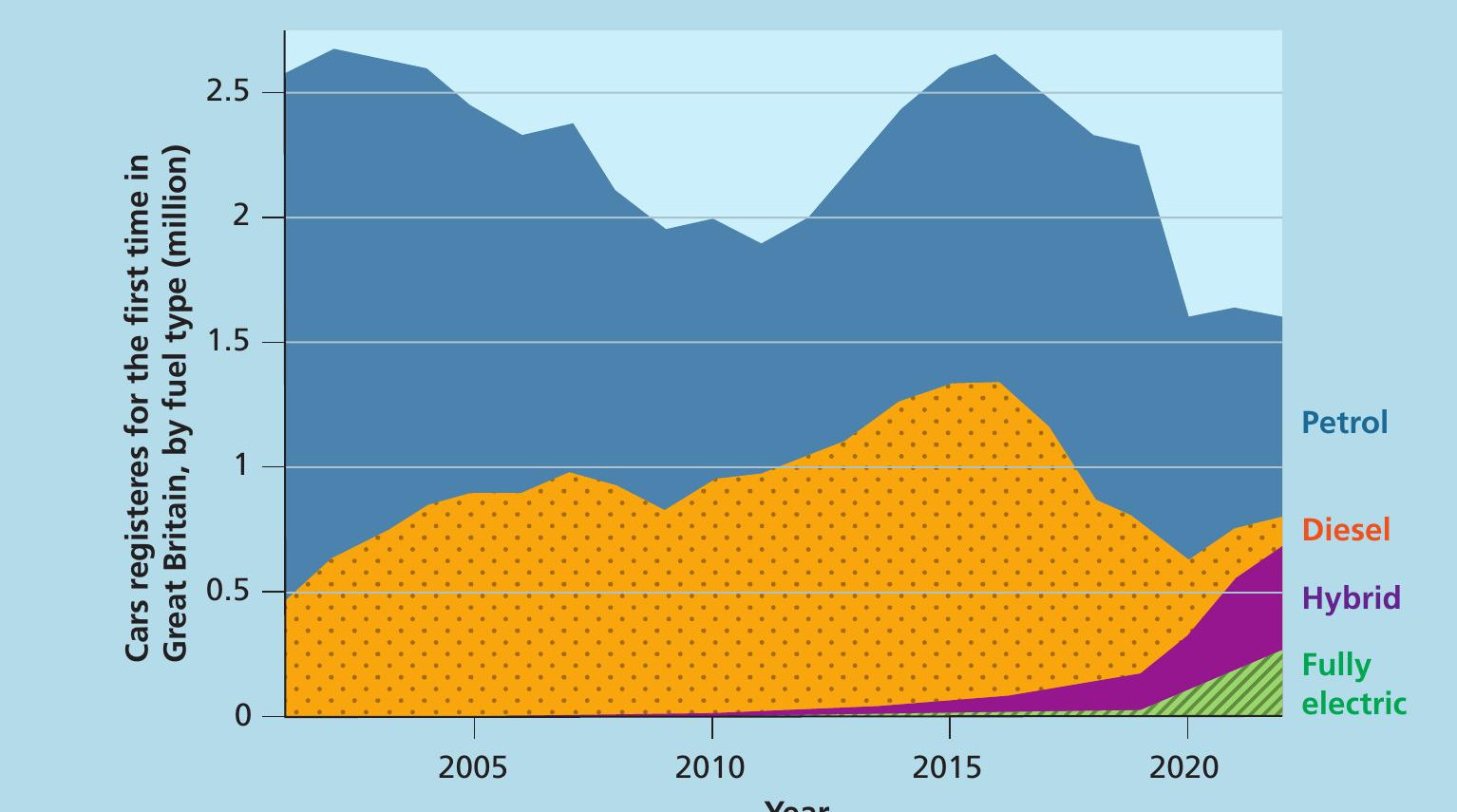
The number of electric cars on UK roads is a small but growing. Electric cars run on a battery, which requires charging after up to 300 miles depending on the model of car. If most of our electricity is generated from renewable or low-carbon sources, electric cars can play a role in reducing global greenhouse gas emissions.
The UK government has announced that no new fully petrol or diesel cars will be sold from 2035. To support the adoption of electric vehicles, it is aiming for 300,000 publicly accessible charging points to be in place by 2030.
Your organisation does not have access to this article.
Sign up today to give your students the edge they need to achieve their best grades with subject expertise
Subscribe



